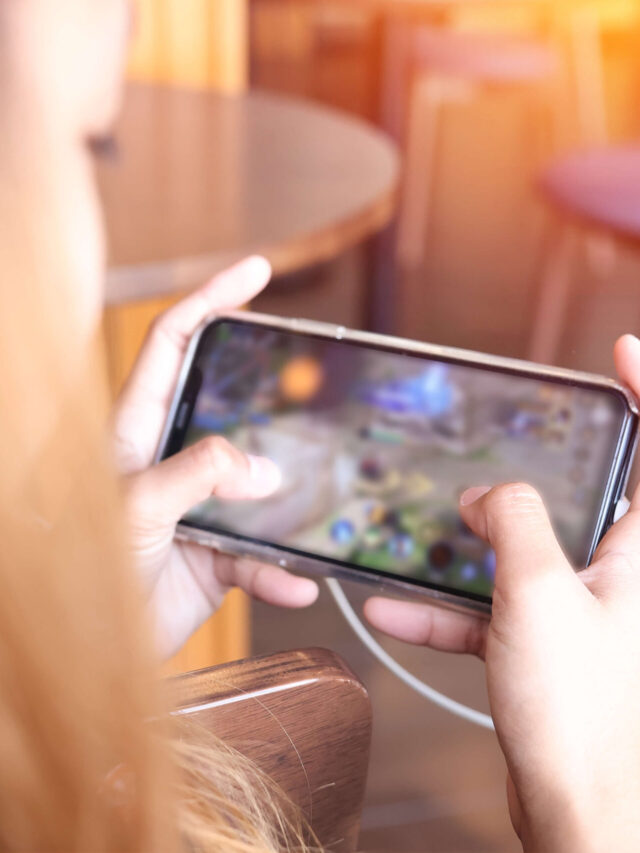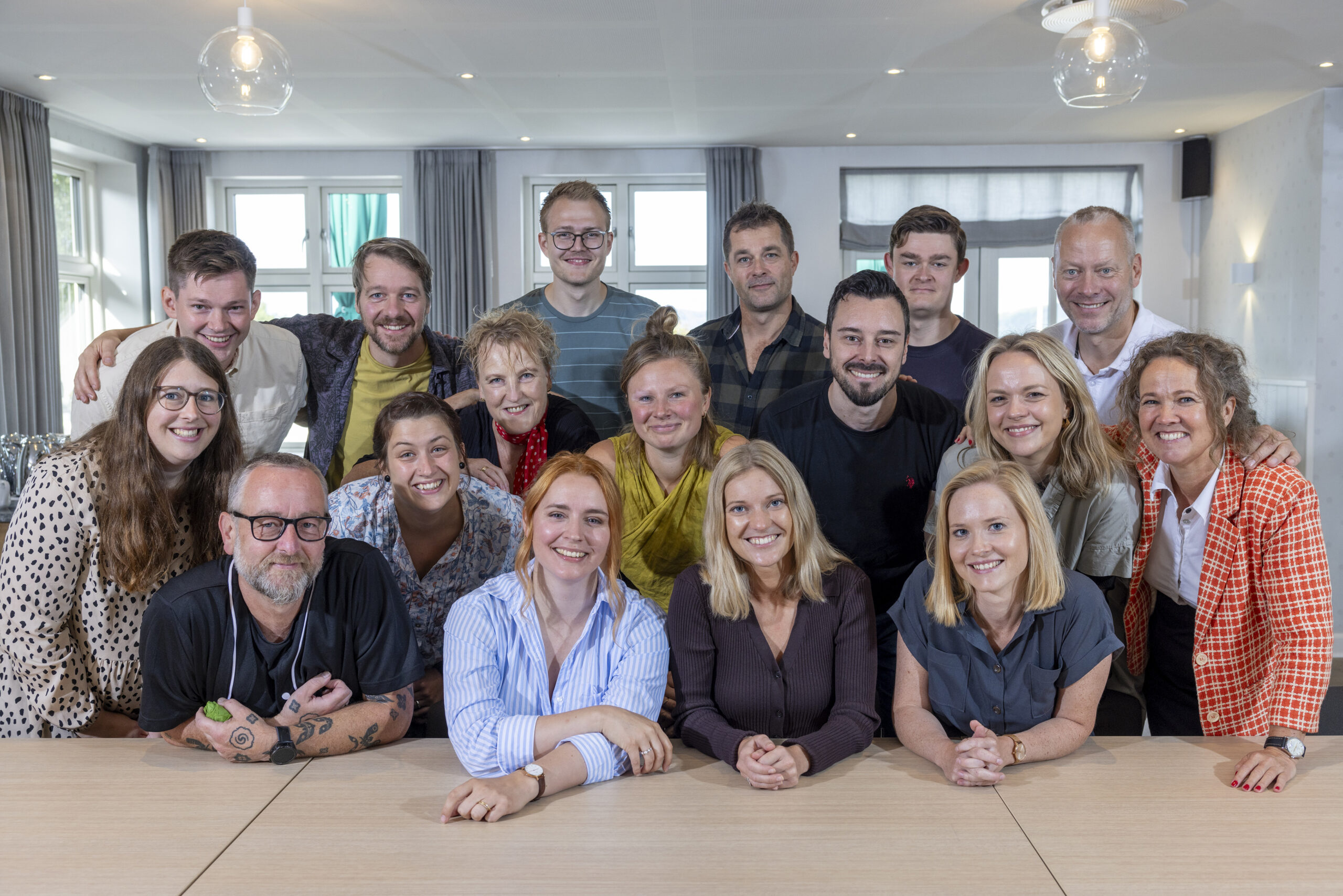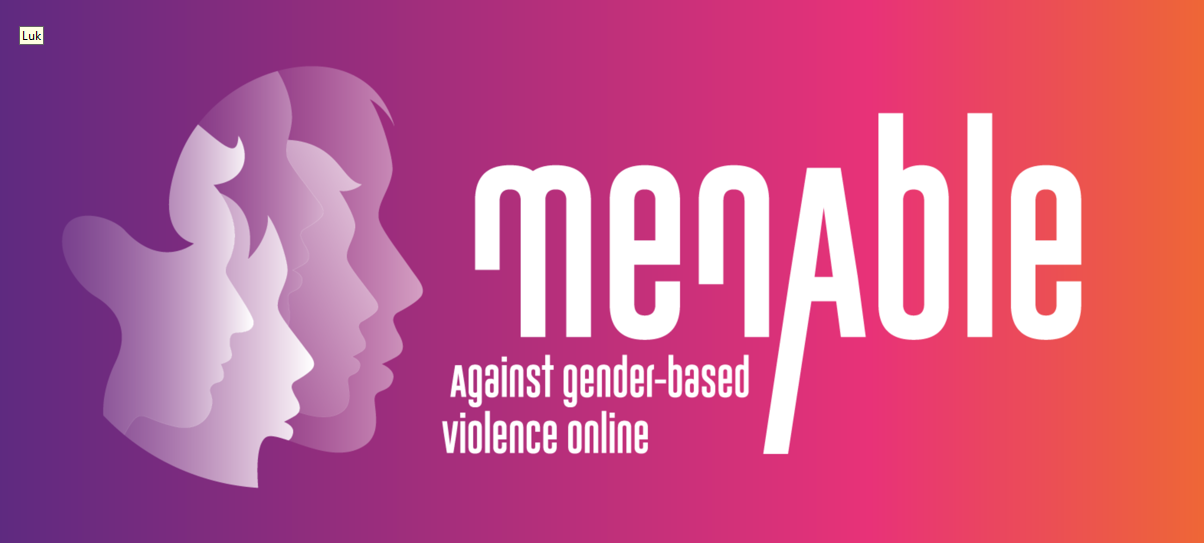Computer games as a pedagogical tool – a municipal project.
Smoke grenades are important
Within the blue walls, decorated with gaming-logos and drawings, which the Aarhus Municipality have made available, a group of young people, who have some kind of challenge in their everyday lives, and a love of games and game universes as their only common denominators, meet three times a week. Some of them are there because they have an ADHD, autism, or anxiety -diagnosis, which is getting a bit out of hand. Others are there because they have been socially isolated from their peers for a bit too long, and thus need to train their social skills a bit. The only thing which we all have in common, is that we have an interest in computer games – and that is the common ground, where we meet each other.
The aspiring class, the young who are new to the project, meet on Mondays. The elite class meet every Wednesday, starting with the gaming sessions, and then later, they have dinner together. On Thursday the doors are open to anyone who wants to come – which, quite often, means almost everyone. For those who are new to the group – the aspirants – the time spent with the program is divided equally between classes about gaming, and group exercises on one hand, and the games themselves on the other. In the beginning, the parents of the aspirants are also part of the program, receiving separate classes. Furthermore, the parents are given the opportunity to meet with other parents and discuss some of the things which may give cause for concern, or excitement, when you have a child who is a gamer.
For the young and their parents alike, the classes deal with topics such as:
- Can you become addicted to computer games?
- Will playing games cause you to become violent? Why the age restrictions?
- What can the skills and experiences gained will gaming be used for?
- How to best have a conversation in the digital space.
The classes are not tied to any kind of national test or a certain curriculum. Instead, the starting point is to meet the young at eye level, as they are engaged in their hobby, and try to develop qualified opinions about said hobby. Furthermore the young get training in how to behave during clases, as during the preliminary talks, many of them express a wish, wanting to get better at keeping up with their school work.
In some cases, the classes are taught by young people, who have been part of the program for a good while longer the the aspirants. For some, having to make a presentation in front of peers, can be quite a fear-inducing experience, but when the subject matter is something like “smoke grenades on Mirage and Inferno”, instead of something like anatomy, or the blissful insights relating to fractions, that sometimes makes it a bit easier – and it can be an invaluable training experience.
The Hopeless adults and the capable young
When the young are enrolled in the program, they have a kickoff-conversation with two of the programs youth workers. Here the young talk about what they think they are good at, as well as what they would like to get better at. The picture which the young thus paint of themselves, together with comments from the parents or the contact, is used to form the project groups basis for measuring weather or not the young person succeeds in the course of the program. According to both the young themselves, and the observations made by the adults around them, by far most of the young people experience significant progress regarding school, as well as family relations and relations with friends, within the first months.
As professionals, it is easy for to hold the young accountable to kvantitative ordinances and measurable parameters, such as, their level of school attendance, how often they have done something with friends, how often they have engaged in skinbetting ect.. With all that said, our main motivation for expanding the project to an additional five municipalities, was the fact that we can see, that the young people experience personal growth, and at a basic level, they simply become happier than they were before. However, it is not the games as such that are making the young happier than they were before; It is the focus, the atmosphere, and the setting of the project.
We build a space, where the games only have value insofar as we play them together – and have a good time doing so. Of course, weather we win or loose does matter, and naturally 1st place is also the most fun place to to be standing. Gaming is a competitive sport, but the main thing, is that we try to win – together. The program allows us to play all kinds of genres and titles; Counter-Strike, League of Legends, FIFA and Fortnite have been at the top of our list of activities for a long time. When it comes to playing the young people’s favourite games, the game in question only has to meet the following simple criteria: It has to have multiplayer, and it has to be a game which others want to play as well. This means that as adults, we have to be good at not hindering the experiences that the young are having, when playing their favorite games, and even though that approach has lead to a lot of late night sessions, it has also had the effect of allowing us to enter their digital and social arena, and to to so, on an (almost) equal footing. Allowing the young to teach the grownups how the games are played, is also a pedagogical exercise – even if it does require that one is not “totally” hopeless to begin with.
Skills transferable to the manual world
It is such a great thing to see; when we put the young in a room and tell them that EVERYONE in here is a nerd – even if nerds come in many different varieties, Dungeons & Dragons, Diablo, and League of Legends still have something in common – then the young succeed. To many of them, the nerd culture becomes a sanctuary in a world, which due to anxiety, bullying, parents, or whatever else, can suddenly become very hard to handle, unlike the nerd world, which, by contrast, they become very skilled at handling. Instead of telling the young that the skills and experiences which they have gained from playing digital games – as well as from being part of the gaming culture – don’t have any value, we can make them feel ten feet tall, when we share the genuine excitement that they feel after having won a chicken dinner the previous night. And even more importantly; we can motivate them to participate in the program. Some of the young in the programm are so afflicted by anxiety or social apathy, that they have not been outside their own home for long periods of time, but because they are SO motivated to be part of the gaming program, they may learn to set their alarm clock again, dare to take the bus, or dare to make new friends, because “Everyone in here is a nerd like me anyway”.
On the surface, the gaming programm is “just” about hanging out with the young, while playing a bit of Counter-Strike or Gangbeasts ….but underneath all that, countless pedagogical, psychological and social considerations are involved, and this is where Centre for Digital Youth Care’s (CfDP) expert knowledge gets to be part of the mix, which also consists of the know-how and practical experience, which employees of the Aarhus Municipality brings to the table. Currently, we are in the process of putting together a manual, containing all the approaches, experiences, and exercises which make up the everyday life of the programm. When the manual is finished, the program will be ready to expand to the five partnering municipalities, which are currently being selected, and partnership agreements are being drawn up.
Taking our experiences, gained from our work with and within the Aarhus Municipality, and applying them to other municipalities is going to make this fall an exciting time for us. I have no doubt that part of the reason why the program has had some success in Aarhus, is because we have been lucky enough to have some of the most impressive and hardworking young people ever, but even so, there are commonalities, transferable knowledge, and practical experience, which we can use when starting similar programs with other groups. Funds from the Ministry of Health have made it possible for CfDP to cover (some of) the payroll cost, the introductory events and courses, which are a necessary prerequisite before new additional municipalities will be able to run a program of their own. What this means, is that we are passed the first big hurdle, which one needs to overcome when implementing these kinds of program at a municipal level, namely the question “Who’s paying?”, cause we have an answer; “we are”.
The gaming project is run by some amazingly competent people at CfDP and the Aarhus Municipality, and as time has passed, the project has passed many a litmus test, which is why we are going to take our practical knowledge, along with the new manual, and apply it to the rest of Denmark. We have witnessed the big difference that it has made in the lives of many young people in Aarhus, and we are super excited to be able to help five other ambitious municipalities start their own programs.
This article was originally written (in danish) by Christian Mogensen for CfDP, and subsequently translated and edited by Michael Sørensen]]>



Hvis du vil sætte et par ord på din feedback, vil det hjælpe os rigtig meget til at forbedre vores indhold.